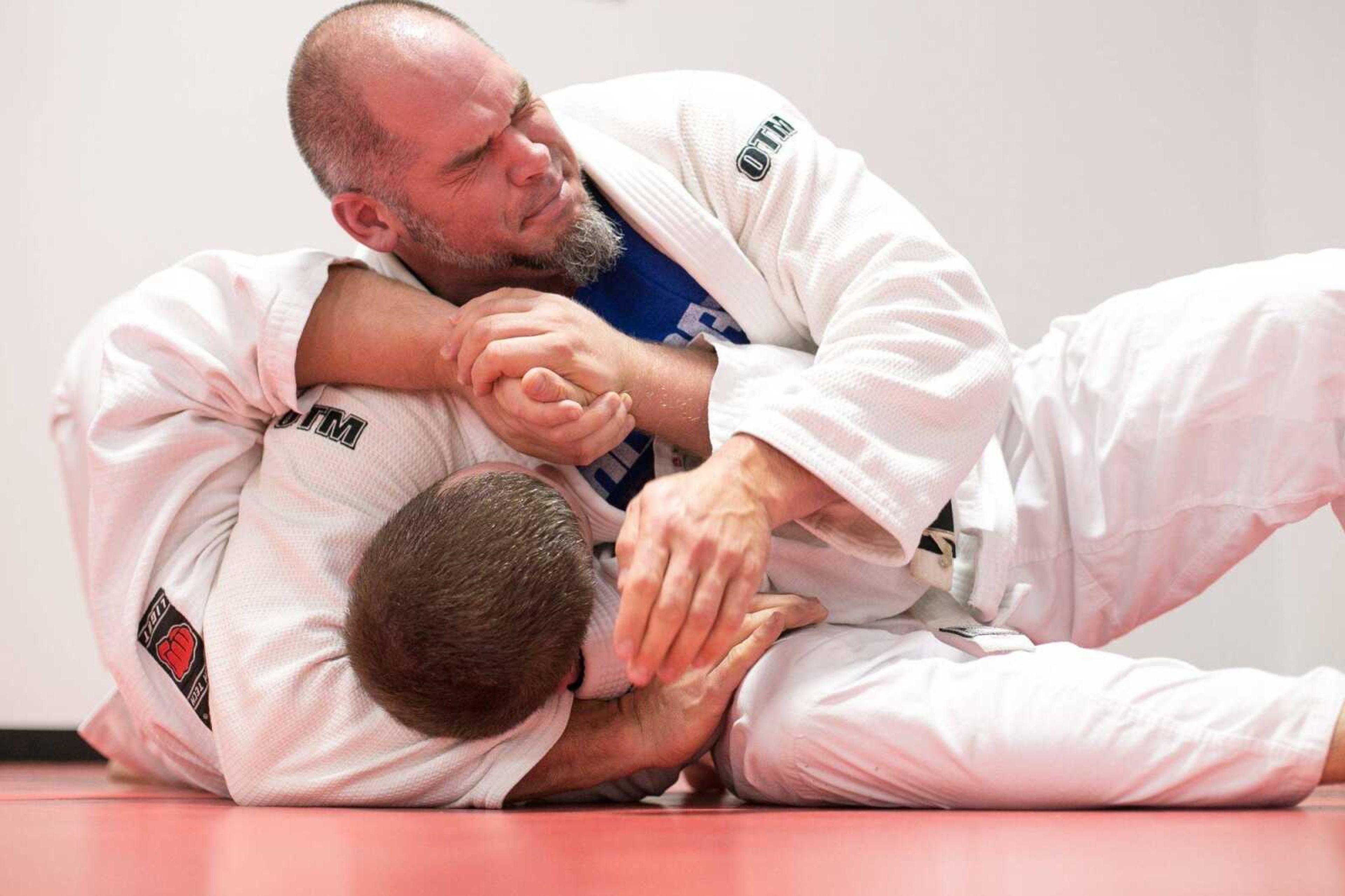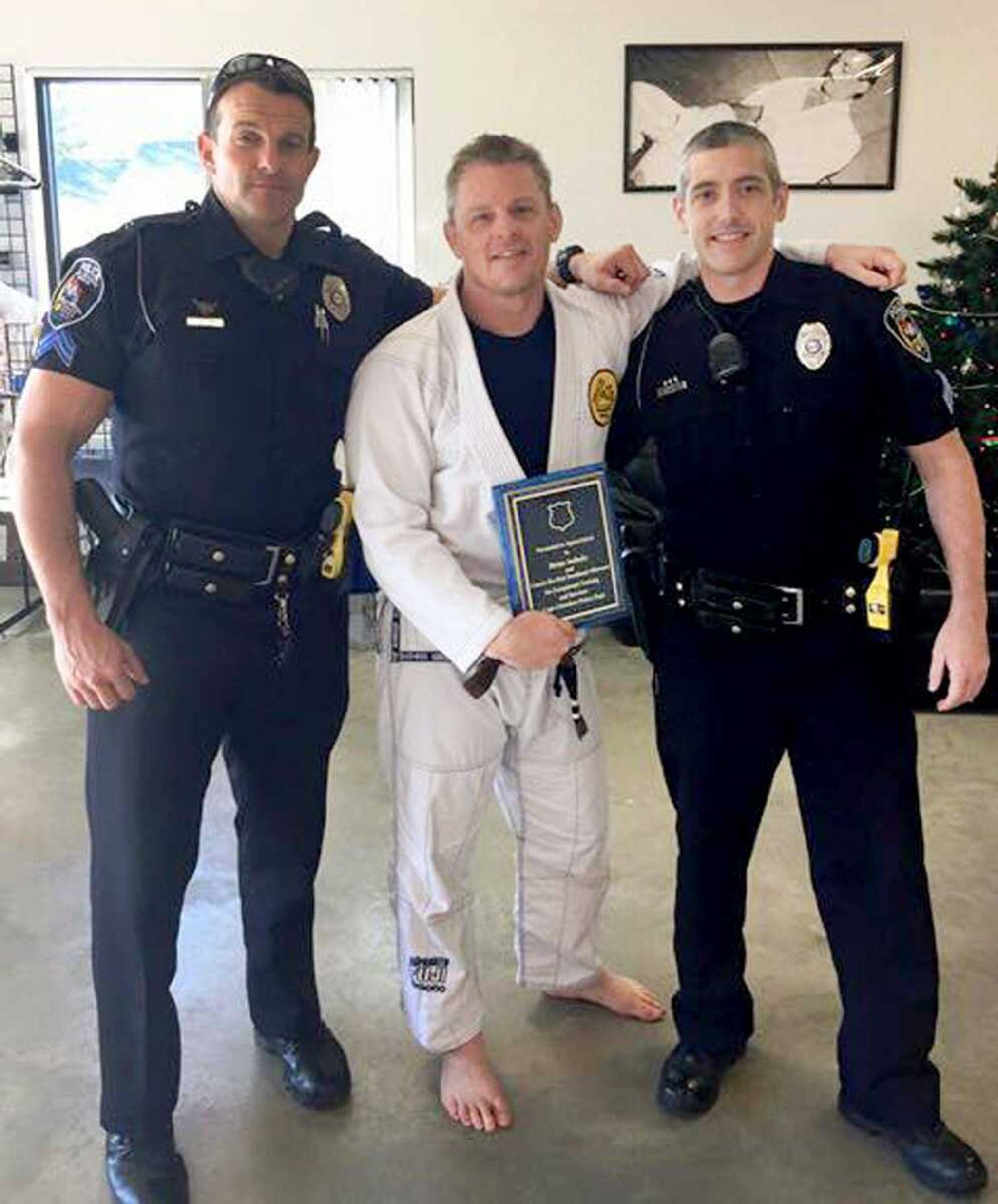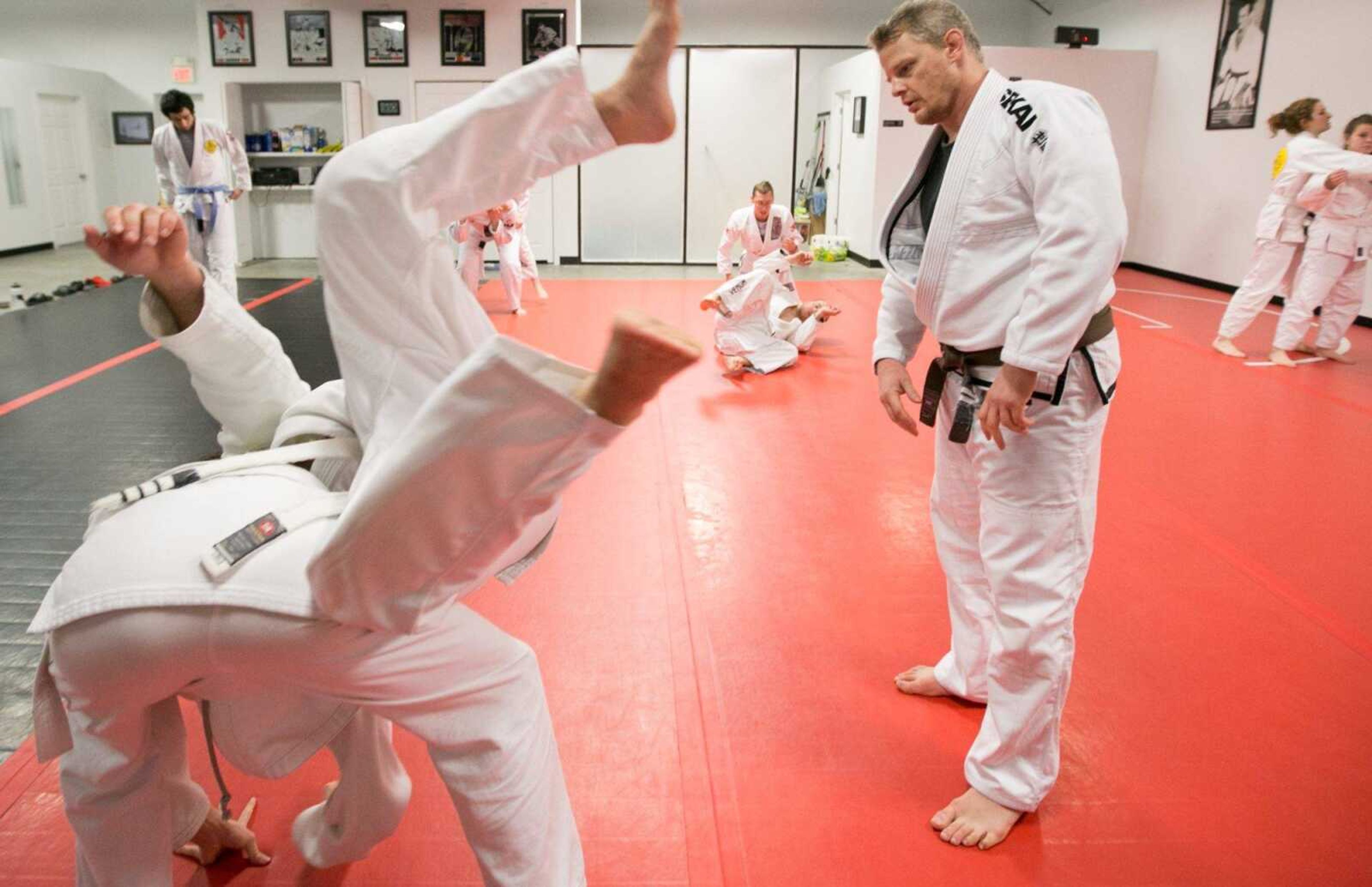Some Cape officers learn self-defense from martial-arts instructor
It's a common enough occurrence -- suspects resist arrest, and Cape Girardeau police officers need to bring them to the ground to subdue them. "Every single officer uses a defensive tactical skill," Cape Girardeau public information officer Adam Glueck said. "The chances of you have to use a skill to contain a combative subject are very likely. Most officers, not just in Cape Girardeau, go their entire career without having to fire their weapon in the line of duty."...
It's a common enough occurrence -- suspects resist arrest, and Cape Girardeau police officers need to bring them to the ground to subdue them.
"Every single officer uses a defensive tactical skill," Cape Girardeau public information officer Adam Glueck said. "The chances of you have to use a skill to contain a combative subject are very likely. Most officers, not just in Cape Girardeau, go their entire career without having to fire their weapon in the line of duty."
What if that suspect is much larger than the officer? With limited defensive-skill training, the chances increase the officer or suspect will be injured in the encounter.
Gracie jiujitsu provides an answer to this quandary by using leverage and technique to the user's advantage.
"You don't want to be on the ground, and you don't want to be on the bottom. That's a bad place to be," Gracie Jiu-Jitsu of Southeast Missouri instructor Brian Imholz said. "But if I end up in that situation, I want to know how to defend myself."

Glueck referred to a study from the Force Science Institute that about six in 10 officer encounters with combative subjects end up on the ground. Jiujitsu emphasizes techniques that allow the practitioner to turn the tables -- for instance, having the opponent in a headlock.
"Knowing how to control someone on the ground, sometimes it takes a back seat to the other training that we do," Glueck said.
Imholz has been instructing a number of Cape Girardeau officers since his school opened three years ago. Glueck was one of the first officers to take jiujitsu classes and remains a regular at Imholz's academy in Jackson because he feels he's getting a good workout while learning something at the same time.
Interest in jiujitsu has spread among the Southeast Missouri law-enforcement community, and Glueck has worked to add Gracie jiujitsu as an option for officers who need skill hours to retain a certification.
Recently, Cape Girardeau police presented Imholz with an award for his work with the department. Imholz has been practicing jiujitsu for 10 years and martial arts for more than 20.

Imholz became interested in martial arts when he participated in a demonstration, and the smaller instructor controlled him with ease. He said he thinks jiujitsu is one of the most practical and efficient martial arts available.
"It's not about winning a fight, because a fight is hard," Imholz said. "It's about having a chance to win. (Jiujitsu) gives me a chance to survive."
Gracie jiujitsu, created in Brazil, gained popularity around the globe because of the proliferation of mixed martial arts; nearly all the top mixed martial-arts fighters practice some form of jiujitsu. Imholz has some advanced students in his classes, including Dalton Toombs, who was a state and national champion in National Guard mixed martial-arts competitions in 2011.
"You can do it at 100 percent and not get hurt," Toombs said of jiujitsu. "I was a mini-superstar in the Missouri National Guard. If it wasn't for jiujitsu, I wouldn't have been able to do any of that."
Imholz takes pride in his academy and in Gracie jiujitsu in general as being applicable to people in all walks of life, however. In his life, Imholz said jiujitsu has greatly increased his confidence, especially in public speaking.
"It's not about making better fighters; it's about making better people," he said.
Emily Diebold did not think she would like jiujitsu much, but her husband persuaded her to try it.
"I didn't know how to defend myself at all," she said.
Now she finds herself approaching situations differently than she would in the past. Recently, she observed a man at a gas station staring at her obsessively. She said he waited by the convenience store door for her in what she thought was a confrontational manner.
Before receiving training in jiujitsu, she would have ducked down in her car and waited for the man to leave. Now, she walked straight at him, head up, and he backed down.
"As long as they don't have a gun or knife, I feel comfortable," she said.
Chris Hartlein participates in Gracie jiujitsu with his whole family. He is proud of the way the martial arts have influenced his 12-year-old son, Carson, to approach confrontational situations in school in Jackson.
In one such instance, a bully was dragging students down to the ground by their collars. He walked along the hallway doing this to every student who was smaller than him. When he tried to do it to Carson, Carson broke the two-handed grip like a swimmer bringing his hands together during the breast stroke. He did this repeatedly until the bully gave up out of frustration.
There was another instance where Carson took more drastic action. A student threw a punch that struck the back of his head. Carson turned, and as he saw the second punch coming, he caught his attacker's arm and brought him to the ground. Carson held the student down until recess was over.
Carson was worried he would be suspended because of the school's no-tolerance policy toward fighting, but a video camera on the playground supported Carson's innocence.
"He did exactly what he was supposed to do," Chris Hartlein said. "It makes me feel good that he's able to use self-defense for good."
bkleine@semissourian.com
(573) 388-3644
Pertinent address: 3210 Old Cape Road, Jackson, Mo.
Connect with the Southeast Missourian Newsroom:
For corrections to this story or other insights for the editor, click here. To submit a letter to the editor, click here. To learn about the Southeast Missourian’s AI Policy, click here.









